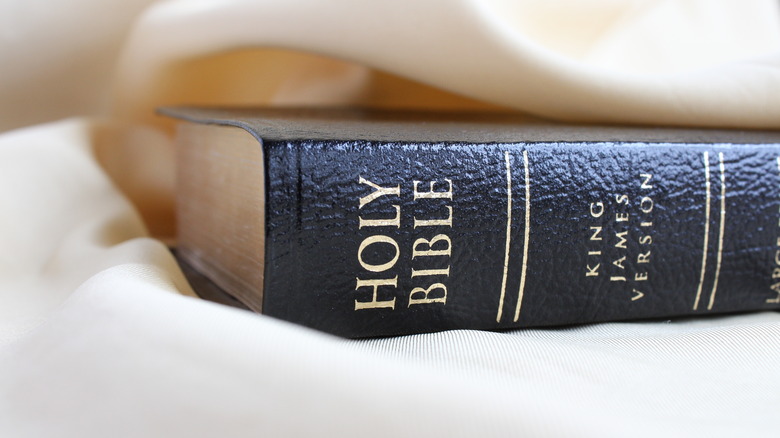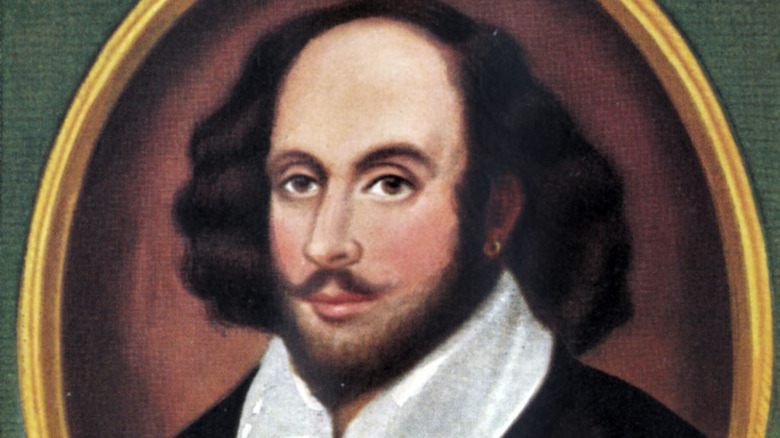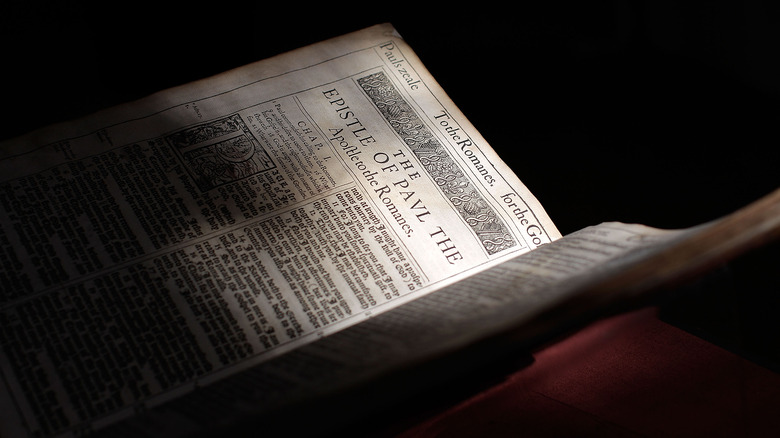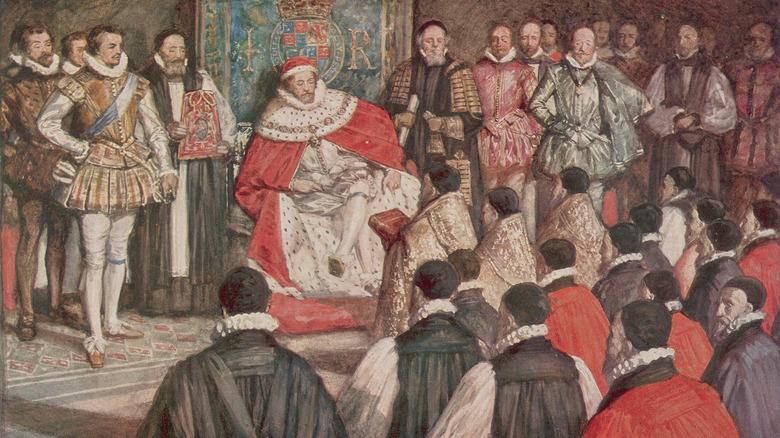The Truth About Shakespeare And The King James Bible
When it comes to the English language, William Shakespeare is a true hero. His works not only live on through the modern era with adaptations galore, but they helped shape the way we use the language today — as BBC notes, we can't even properly gauge just how much of an impact he had. One thing, however, is certain: In everyday life, all of us use expressions coined by the great writer. Phrases like "in a pickle" and "wild goose chase," the word "gossip," and even the knock-knock joke were all invented by the author along with many others.
Likewise, the King James version of the Bible holds its own claim to fame among people of faith. According to a 2015 report by The Washington Post, it's the most-read version of those scriptures in the United States, and as Live Science points out, the King James Bible (KJB) allowed the ruler it's named after to leave a mark on Christian culture long after his death.
So what do these two greats, Shakespeare and the KJB, have to do with each other? Some people seem to believe they're interconnected, to the point of one leaving "hidden secrets" within the other, but the reality is a totally different story.
The rumor: Shakespeare wrote the King James Bible
William Shakespeare was still alive when the King James Bible was underway in 1610 – he would've been 46 years old. It's possible you've heard that Shakespeare was the one who translated the original KJB or, at least, that he was one of the translators who worked on the religious text. This rumor has grown so pervasive that many believe it without knowing where they'd learned it. In fact, some truly believe they've found "proof" of the master wordsmith's work hidden in the pages of the document.
As Eden explains, Shakespeare had written for King James (the monarch) more than once, and this, to them, counts as evidence that the author may have also written part of the KJB. They also claim that the stylings in the Old Testament Book of Psalms are too poetic to be the work of the dry scholars known to have translated this particular work, but one final clue locks it in for many conspiracy theorists out there. Apparently, in Psalm 46, the 46th word from the beginning is "shake" while the 46th word from the end is "spear," and since Shakespeare would've been 46 when the translation work was underway in 1610, there's no possible conclusion other than he wrote it. Of course, cryptic coincidences that take this much of a stretch to connect rarely count as evidence to credible scholars. This isn't "The Da Vinci Code."
The truth: He had nothing to do with it
Britannica says outright that William Shakespeare did not write the King James Bible. They also point out the vast difference between Shakespeare's writing style and the one used in the KJB. So, even though Shakespeare was a literary phenom and the KJB was a great literary feat of his era, there's really no evidence linking the two to each other. "But what about all the 46s?" the conspiracy theorists ask from the back. Well, even if that "evidence" was as straightforward as it sounds, it wouldn't be very convincing. The fact is, it's not straightforward at all.
According to Apologetics Press, you can't find "shake" and "spear" in the proper spots without first omitting the word "selah" from Psalm 46. "Selah" was used in the text as a kind of artful punctuation word, but the conspiracy gets less credible when you have to delete even artful words to make it happen. On top of that, both "shake" and "spear" are used many times throughout the KJB, and were present in the Hebrew versions of Psalm 46 long before Shakespeare was born. If that's not enough, both the translation process and Shakespeare's life were fairly well-documented, and neither mentioned one having anything to do with the other. The chances of Shakespeare working on the KJB are slim to none.
Who actually translated the King James Bible?
The book is called the King James Bible (or the King James Version), and while the bulk of the translation wasn't written by King James himself, that doesn't mean none of it was. King James, like most of the nobles of the day, was highly educated, and according to Time, he actually did translate some of the Psalms personally. The rest, however, was contracted out. He was trying to get all the churches in his lands to use one official copy in an attempt to quell rising tensions between Christian factions, and for that, he needed it finished faster than one man could handle.
The lead on the translation was John Rainolds, president of Corpus Christi College. Britannica says the committee under him was composed of 47 clergymen and scholars who worked on the project at Rainolds' university before the project entered an intense peer-review-like process where they poured over the words to come up with the best way to construct each individual phrase. Rainolds ended up dying before he could see the work finished, but at least he got to see it while it was being worked on. Do you know who likely never saw the manuscript until it was in print? William Shakespeare.



